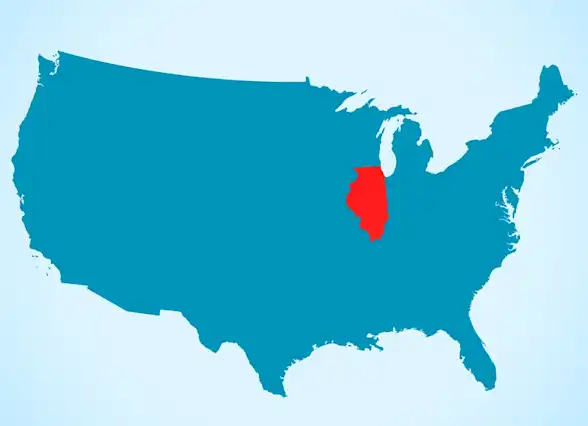Guide to the Illinois Last Will and Testament
A Last Will and Testament is one of the most essential legal documents you can create. It gives you control over what happens to your property and loved ones after your death—and ensures that your wishes are clearly understood and legally recognized.
Get insurance benefits, legal documents, and medical records in one place

📄 Download the Official Form
You can fill out and customize the official Illinois Last Will and Testament here:
👉 Create Legal Illinois Last Will and Testament Document
What Is It?
A Last Will and Testament is a legal document that:
States who should inherit your property, money, or other assets.
Names a personal representative (executor) to manage your estate.
Allows you to appoint guardians for your children or dependents.
Ensures your final wishes are honored according to Illinois law.
When Should I Use It?
You should create a will if:
You want to decide who gets your property (instead of letting the courts decide).
You have children under 18 and want to name a legal guardian.
You want to leave specific gifts to family, friends, or organizations.
You want to name someone you trust to settle your affairs.
You want to reduce conflict among loved ones after your death.
It's recommended for all adults, regardless of age or financial situation.
What Does It Cover?
Your will can include:
Distribution of assets: Who receives what (real estate, money, belongings).
Executor: The person responsible for handling your estate.
Guardianship: Who should care for your minor children or dependents.
Specific bequests: Gifts to friends, charities, or others.
Funeral or burial preferences (optional).
You can also use the will to disinherit someone or explain your decisions.
Key Roles in a Will
Role | Description |
Testator | You – the person creating the will |
Executor | The person who carries out your wishes |
Guardian | The person you name to care for your children (if needed) |
Beneficiaries | The people or organizations who will receive your assets |
Do I Need a Lawyer?
You do not need a lawyer to make a valid will in Illinois, but:
You must sign it in the presence of two witnesses.
Your witnesses cannot be beneficiaries of the will.
The will does not need to be notarized, but notarizing it can make probate easier by turning it into a self-proving will.
If your estate is complex, or if you’re worried about disputes, legal advice is a good idea.
What Do I Do After I Sign It?
Store the original in a safe but accessible place.
Give a copy to your executor and tell your loved ones where to find it.
Consider filing it with your attorney or a legal document service.
Keep your will updated as life changes (marriage, divorce, children, major assets, etc.).
Can I Change or Cancel It?
Yes. You can:
Write a new will, which automatically revokes the old one.
Add a codicil (a legal amendment to the existing will).
Destroy the old will if it’s no longer valid.
Will vs. Living Trust
Feature | Will | Living Trust |
Goes through probate? | ✅ Yes | ❌ No |
Public record? | ✅ Yes | ❌ No |
Names guardians for children? | ✅ Yes | ❌ No |
Controls when heirs get assets? | ❌ No (paid out after probate) | ✅ Yes |
Can manage assets if you're incapacitated? | ❌ No | ✅ Yes |
Most people benefit from having both: a will to handle guardianship and any assets not in a trust, and a living trust to avoid probate for larger assets.
Get more support and guidance on insurance benefits, medical records and legal forms.
Helpful brings together your insurance benefits, legal documents, and medical records in one personalized place — so you always know what you have, and never have to search again.

Technology for Health Tasks. Mental Health for the Tough Stuff.
Helpful connects your medical records, insurance, and caregiving tasks automatically. And when you need more than logistics, a therapist is here to guide you.
In-Network and Covered
For Individuals, Couples and Families
HIPAA Compliant, Data Stays Private


Healthcare Tasks Simplified

From syncing records to spotting drug interactions, Helpful does the heavy lifting, turning complex health info into clear tasks and showing you benefits you can actually use, giving you clarity and control over your care.

In-Network Mental Health

Our licensed therapists are here to support you and your loved ones through stress, burnout, and life’s hardest moments, with an inclusive, compassionate approach that works with most insurance plans.

Create Legal Documents

Plan ahead by creating will, trusts, advance directives and more, that ensure your wishes are honored in the event you can’t speak for yourself -with Helpful guiding you every step of the way.